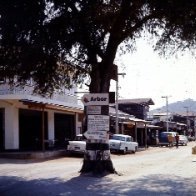Vegetables contaminated with chemicals
-
Recently Browsing 0 members
- No registered users viewing this page.
-
Topics
-
-
Popular Contributors
-
-
Latest posts...
-
1
Sure no fake products on Shopee
Try to find an original product in the electric/battery powered tools section. And they don't misspell Makita or DeWall. Brazen fakes. Makita drill with two batteries for 459 Baht, side by side with another seller for 2700 Baht, one battery. One spare battery alone is usually in the range of 1000 Baht. The list of examples is endless. -
37
Canada Surrenders
Have you looked at the cost of goods in canada ? Hardly winning. Who caused that mess ? -
-
37
Canada Surrenders
Yeah, they can isolate us, LOL No need to feed the enemy, we will make it up Its not just tariffs. You know very little of whats going on here. -
30
Crime Horrified Crew Detain Rapist Mid-Flight After Teen's Report
Fair point - I stand corrected that the youngster might have been travelling alone. However, as pointed out by NanLeaw - IF the parent was not sat next to the 15 year old, or, if the parent was asleep... the comment "Where the f*** was the accompanying parent?" is somewhat moot. The surprise here is that the charges and penalties were not more harsh. Also, if there isn't already, there should be an 'international no fly list' where such characters are banned from travelling on any airline. In fact, I would have though there is a system whereby airlines can share this information to protect other passengers. -
4
Community American Tourist Found Dead on Patong Beach
Your probably right but if so the article should have been updated before publishing.
-
-
Popular in The Pub









Recommended Posts
Create an account or sign in to comment
You need to be a member in order to leave a comment
Create an account
Sign up for a new account in our community. It's easy!
Register a new accountSign in
Already have an account? Sign in here.
Sign In Now